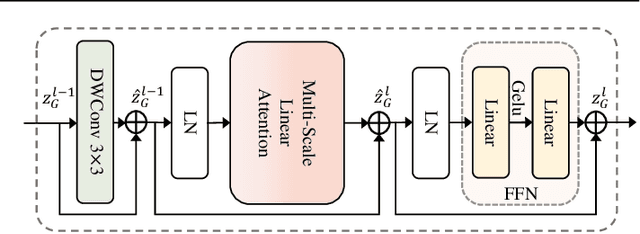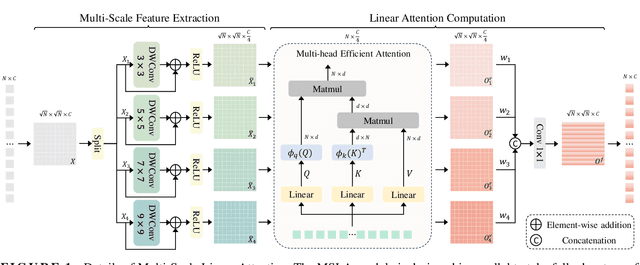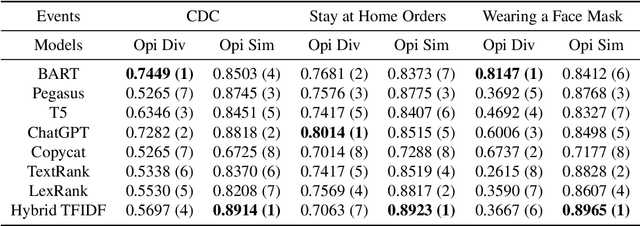Nannan Huang
REFER: Mitigating Bias in Opinion Summarisation via Frequency Framed Prompting
Sep 19, 2025Abstract:Individuals express diverse opinions, a fair summary should represent these viewpoints comprehensively. Previous research on fairness in opinion summarisation using large language models (LLMs) relied on hyperparameter tuning or providing ground truth distributional information in prompts. However, these methods face practical limitations: end-users rarely modify default model parameters, and accurate distributional information is often unavailable. Building upon cognitive science research demonstrating that frequency-based representations reduce systematic biases in human statistical reasoning by making reference classes explicit and reducing cognitive load, this study investigates whether frequency framed prompting (REFER) can similarly enhance fairness in LLM opinion summarisation. Through systematic experimentation with different prompting frameworks, we adapted techniques known to improve human reasoning to elicit more effective information processing in language models compared to abstract probabilistic representations.Our results demonstrate that REFER enhances fairness in language models when summarising opinions. This effect is particularly pronounced in larger language models and using stronger reasoning instructions.
Less Is More? Examining Fairness in Pruned Large Language Models for Summarising Opinions
Aug 25, 2025Abstract:Model compression through post-training pruning offers a way to reduce model size and computational requirements without significantly impacting model performance. However, the effect of pruning on the fairness of LLM-generated summaries remains unexplored, particularly for opinion summarisation where biased outputs could influence public views.In this paper, we present a comprehensive empirical analysis of opinion summarisation, examining three state-of-the-art pruning methods and various calibration sets across three open-source LLMs using four fairness metrics. Our systematic analysis reveals that pruning methods have a greater impact on fairness than calibration sets. Building on these insights, we propose High Gradient Low Activation (HGLA) pruning, which identifies and removes parameters that are redundant for input processing but influential in output generation. Our experiments demonstrate that HGLA can better maintain or even improve fairness compared to existing methods, showing promise across models and tasks where traditional methods have limitations. Our human evaluation shows HGLA-generated outputs are fairer than existing state-of-the-art pruning methods. Code is available at: https://github.com/amberhuang01/HGLA.
MSLAU-Net: A Hybird CNN-Transformer Network for Medical Image Segmentation
May 24, 2025

Abstract:Both CNN-based and Transformer-based methods have achieved remarkable success in medical image segmentation tasks. However, CNN-based methods struggle to effectively capture global contextual information due to the inherent limitations of convolution operations. Meanwhile, Transformer-based methods suffer from insufficient local feature modeling and face challenges related to the high computational complexity caused by the self-attention mechanism. To address these limitations, we propose a novel hybrid CNN-Transformer architecture, named MSLAU-Net, which integrates the strengths of both paradigms. The proposed MSLAU-Net incorporates two key ideas. First, it introduces Multi-Scale Linear Attention, designed to efficiently extract multi-scale features from medical images while modeling long-range dependencies with low computational complexity. Second, it adopts a top-down feature aggregation mechanism, which performs multi-level feature aggregation and restores spatial resolution using a lightweight structure. Extensive experiments conducted on benchmark datasets covering three imaging modalities demonstrate that the proposed MSLAU-Net outperforms other state-of-the-art methods on nearly all evaluation metrics, validating the superiority, effectiveness, and robustness of our approach. Our code is available at https://github.com/Monsoon49/MSLAU-Net.
Bias in Opinion Summarisation from Pre-training to Adaptation: A Case Study in Political Bias
Feb 01, 2024



Abstract:Opinion summarisation aims to summarise the salient information and opinions presented in documents such as product reviews, discussion forums, and social media texts into short summaries that enable users to effectively understand the opinions therein. Generating biased summaries has the risk of potentially swaying public opinion. Previous studies focused on studying bias in opinion summarisation using extractive models, but limited research has paid attention to abstractive summarisation models. In this study, using political bias as a case study, we first establish a methodology to quantify bias in abstractive models, then trace it from the pre-trained models to the task of summarising social media opinions using different models and adaptation methods. We find that most models exhibit intrinsic bias. Using a social media text summarisation dataset and contrasting various adaptation methods, we find that tuning a smaller number of parameters is less biased compared to standard fine-tuning; however, the diversity of topics in training data used for fine-tuning is critical.
Examining Bias in Opinion Summarisation Through the Perspective of Opinion Diversity
Jun 07, 2023



Abstract:Opinion summarisation is a task that aims to condense the information presented in the source documents while retaining the core message and opinions. A summary that only represents the majority opinions will leave the minority opinions unrepresented in the summary. In this paper, we use the stance towards a certain target as an opinion. We study bias in opinion summarisation from the perspective of opinion diversity, which measures whether the model generated summary can cover a diverse set of opinions. In addition, we examine opinion similarity, a measure of how closely related two opinions are in terms of their stance on a given topic, and its relationship with opinion diversity. Through the lens of stances towards a topic, we examine opinion diversity and similarity using three debatable topics under COVID-19. Experimental results on these topics revealed that a higher degree of similarity of opinions did not indicate good diversity or fairly cover the various opinions originally presented in the source documents. We found that BART and ChatGPT can better capture diverse opinions presented in the source documents.
 Add to Chrome
Add to Chrome Add to Firefox
Add to Firefox Add to Edge
Add to Edge